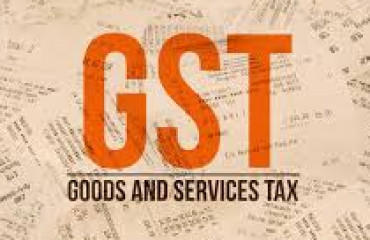
NEW DELHI : The government is increasing the number of portals for registering e-invoices from just one to six as it takes the digital route to plug indirect tax collection leakages in the run-up to a meeting of the Goods and Services Tax Council next week.
NEW DELHI : The government is increasing the number of portals for registering e-invoices from just one to six as it takes the digital route to plug indirect tax collection leakages in the run-up to a meeting of the Goods and Services Tax Council next week.
The portals are the latest step in a move to expand the scope of e-invoicing — beginning with making it mandatory for companies with a revenue of ₹500 crore in 2020, the criteria is now down to businesses with ₹20 crore revenue.
Having benefited from burgeoning tax revenue as a result of enforcement and compliance measures, the government is now expanding the e-invoicing infrastructure to facilitate higher volumes of transactions as its scope widens going forward.
Official data last year showed that only about half of eligible GST identification numbers (GSTINs) were generating these invoices.
The single e-invoice portal so far has been run by state-owned National Informatics Centre (NIC), which now wants to set up one more portal.
In addition, the GSTN has empaneled four more companies for setting up Invoice Registration Portals (IRPs) — Cygnet InfoPath, IRIS Business Services, Defmacro Software (Cleartax), and EY LLP. The GST Council will be informed of the development in the meeting next week. The proposed second NIC portal will be taken up for approval by the Council in the meeting.
With this the government aims to strengthen the IT infrastructure to ensure uninterrupted invoice registration services to businesses.Taxpayers will have the option to choose between IRPs. The government wants to ensure that the load could be balanced between the six portals in case of any glitches or challenges leading to long queues.
While e-invoicing is so far limited to entities with a turnover of ₹20 crore and above for B2B transactions, the government plans to extend it to all entities and also for B2C transactions going forward.
Pratik Jain, partner, Pricewaterhouse & Co LLP said setting up additional IRPs would help the government manage the data traffic, particularly as the ambit of e-invoicing increases. "While in the medium run, this mechanism will replace the existing e-way bill system, eventually the government is hoping to dispense with the present system of filing GST returns for micro, small and medium enterprises (MSMEs)."
M.S. Mani, partner, Deloitte India, said the success of e-invoicing in curbing evasion and assisting the development of a robust database of sales/purchases would encourage the government to expand it to all supplies including at the retail level.
"This will require significant investments in the technology backbone as it will be a real time online portal," said Mani.
Sectors like transportation, insurance and banking companies, other financial institutions, non-banking financial companies, goods transportation agencies and passenger transportation services are exempt from e-invoicing. Besides, units in special economic zones too are exempt from this.
